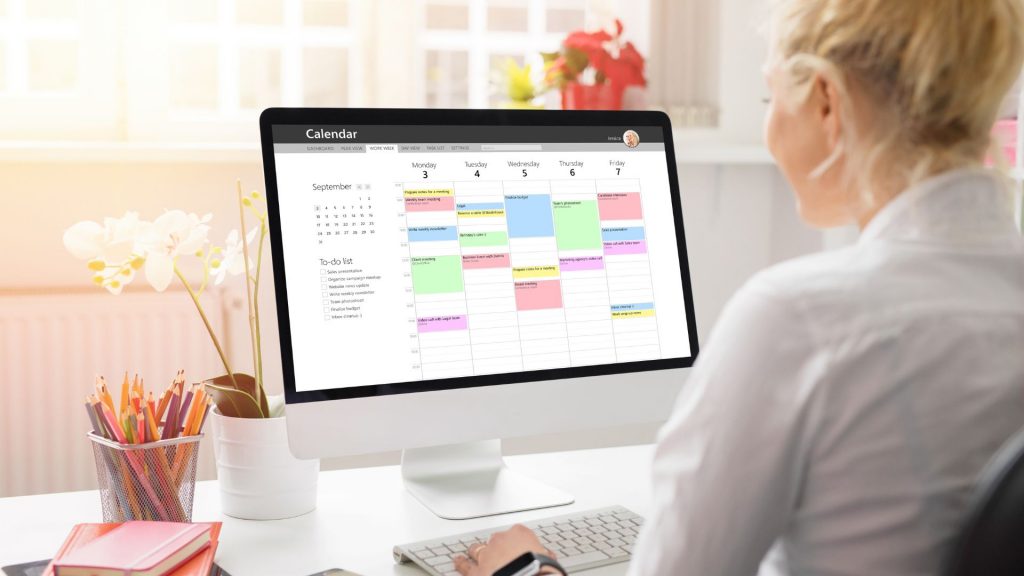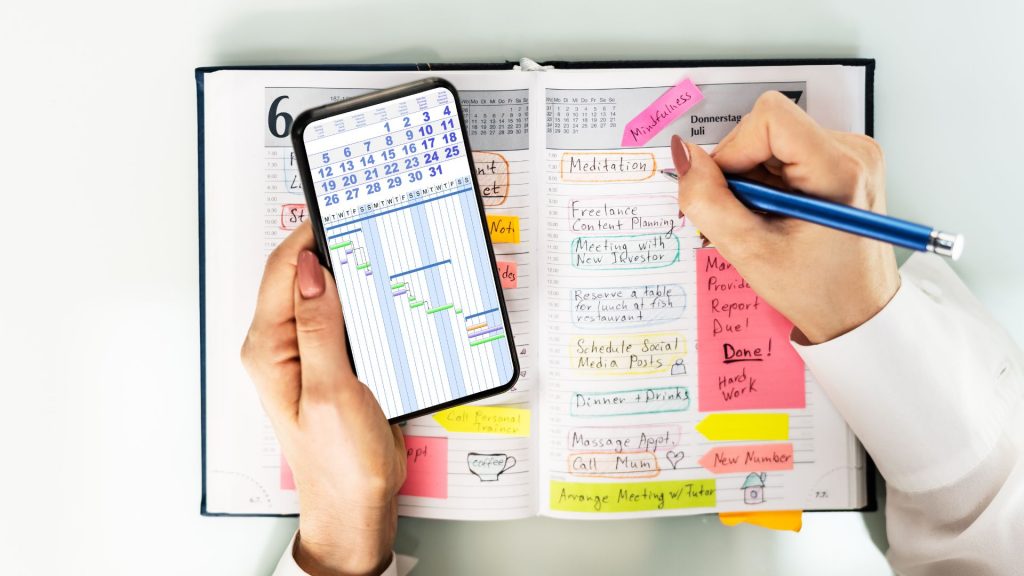Are you struggling to get everything done in a day? Many people find themselves constantly distracted by emails, notifications, and other interruptions, which can make it difficult to manage their time and stay focused in today's fast-paced world.
Fortunately, there are techniques that can be used to take control of time and increase productivity. One such technique is time blocking, which involves dividing the day into specific time intervals and assigning tasks to each block. This creates a clear schedule for the day and helps to stay on track and focused.
In this blog, the importance of time blocking will be explored, along with tips for how to do it effectively. The blog will also discuss how to prioritize tasks, avoid distractions, and make the most of time. With these techniques, anyone can take control of their time, reduce stress, and achieve their goals more efficiently.
RELATED: Achieving Work-Life Balance
What is time blocking?

Time blocking is a productivity technique that involves dividing your day into specific time intervals or "blocks" and assigning specific tasks or activities to each block. By doing this, you create a structured schedule that helps you stay focused and organized and reduces the likelihood of distractions and procrastination.
Why is time blocking important?

Time blocking is a powerful technique that can help you take control of your time and increase your productivity. Here are some of the reasons why time blocking is so important:
- Focus and clarity
One of the main benefits of time blocking is that it helps you focus and achieve clarity in your work. By dividing your day into specific time intervals and assigning tasks to each block, you give yourself a clear roadmap for the day. This can help you stay on track, avoid distractions, and focus on what's most important.
- Prioritization
Time blocking also helps you prioritize your work. By scheduling your most important tasks first, you can ensure that you're making progress on your most critical work. This can help you avoid getting bogged down in less important tasks and ensure that you're using your time in the most effective way possible.
- Efficiency
Time blocking can also help you be more efficient with your time. When you have a clear schedule for the day, you're less likely to waste time on unimportant tasks or get sidetracked by distractions. This can help you make better use of your time and get more done in less time.
- Reduced stress
Finally, time blocking can help reduce stress and overwhelm. When you have a clear plan for the day, you're less likely to feel overwhelmed by the amount of work you need to do. This can help you feel more in control of your work and reduce stress and anxiety.
How to time block?

To time block effectively, it's important to follow a structured process. Here are some specific steps you can take:
- List your tasks: Start by listing all the tasks and activities you need to accomplish during the day. This could include work tasks, personal tasks, and any other commitments you have.
- Divide your day into time blocks: Once you have your list of tasks, divide your day into time blocks. This could be in increments of 30 minutes, one hour, or longer, depending on your preference. Make sure to leave some buffer time between each block to allow for unexpected events or delays.
- Assign tasks to each block: Next, assign specific tasks or activities to each block. Be sure to prioritize the most important ones and allocate more time to tasks that require more focus and attention.
- Stick to your schedule: Finally, it's important to stick to your schedule as closely as possible. This means avoiding distractions, staying focused on the task at hand, and resisting the urge to check emails or social media during your time blocks. However, it's also important to be flexible enough to adjust your schedule if unexpected events arise.
By following these steps, you can effectively time-block your day and increase your productivity. With practice, time blocking can become a habit that helps you stay focused, prioritize your work, and achieve your goals more efficiently.
Tips for effective time blocking and prioritizing

When time blocking, keep these tips in mind: set achievable goals, remove distractions, take short breaks, and review and adjust your schedule regularly. This means being realistic about what you can accomplish, staying focused on the task at hand, giving yourself time to recharge, and making necessary changes to your schedule as your needs evolve. By following these simple guidelines, you can maximize your productivity and achieve your goals more efficiently.
In conclusion, time blocking and prioritizing are essential techniques for anyone who wants to boost their productivity and manage their time effectively. By following the steps and tips outlined in this guide, you can create a structured schedule that helps you stay focused and organized, and achieve your goals more efficiently.
READ MORE: Golden Haven Memorial Park News and Update

